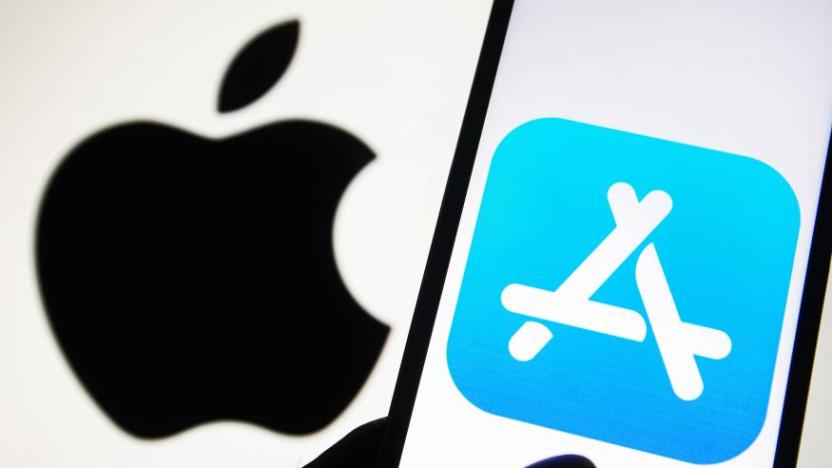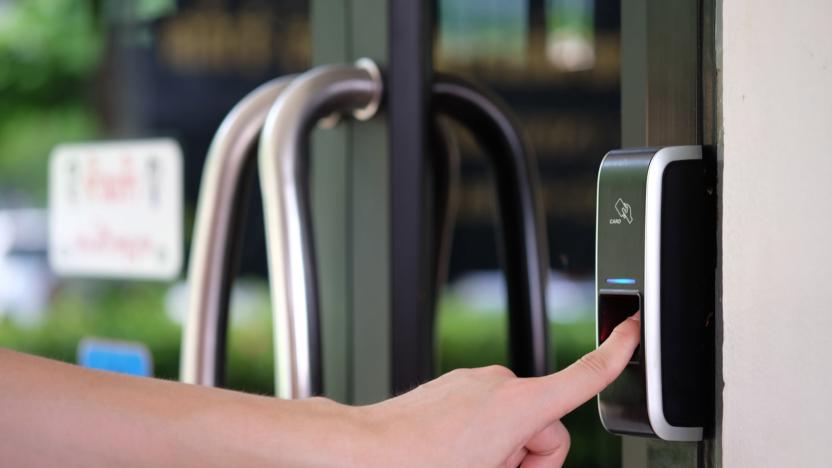fingerprinting
Latest

Apple cracking down on 'fingerprinting' with new App Store API rules
Apple will soon start cracking down on Apps that collect data on users devices in order to track them (aka "fingerprinting").

Google proposes new privacy standards to protect web browsing data
Google is stepping up its efforts to limit web fingerprinting and otherwise protect your privacy while keeping its ad business intact. The internet giant is developing a set of open standards, nicknamed the "Privacy Sandbox," that would allow for personalized ads without requiring that you divulge individually identifying data. The proposals would largely focus on strength in numbers -- advertisers can't pinpoint you if your data forms part of a larger group.

Firefox's latest privacy updates strengthen tracking protection
Firefox is rolling out an "Enhanced Tracking Protection" feature today that will block a list of over a thousand third-party trackers compiled by Disconnect, an open-source anti-tracking tool. New users of the browser who are downloading it for the first time will have the tracking protections turned on by default. Current users can either select the feature manually or wait for Firefox to update it in the coming months.

Firefox is about to get much, much faster
Firefox got speedy last year when its Quantum browser rolled out -- now it's set to get even faster. The latest release rolling out today prioritizes its performance management "to-do" list with a set of features that'll load pages up to 40-80 percent quicker. The browser will now suspend idle tabs, delay lesser-used scripts and skip unnecessary work during start-ups.

Firefox will soon protect you against crypto-mining scripts
At a time when every high-profile data breach sheds more light on how web activity is monitored, Firefox is launching anti-tracking tools to protect against fingerprinting and crypto-mining. Mozilla is again teaming up with Disconnect -- a software company that provides no-tracking software and whose ad tracker blocklist Firefox already utlizes for its tracking protections -- on the new tools. Both of the blocking methods are available to Firefox Nightly 68 and Beta 67 testers. Mozilla plans to enable them by default in a future release.

AI can create synthetic fingerprints that fool biometric scanners
Researchers from New York University have found a way to produce fake fingerprints using artificial intelligence that could fool biometric scanners (or the human eye) into thinking they're the real deal. The DeepMasterPrints, as the researchers are calling them, replicated 23 percent of fingerprints in a system that supposedly has an error rate of one in a thousand. When the false match rate was one in a hundred, the DeepMasterPrints were able to mimic real prints 77 percent of the time.

A newer kind of web tracking is almost impossible to stop
You may think you're thwarting advertisers and other nosy web citizens by blocking cookies and invoking Do Not Track whenever possible, but that apparently isn't good enough. Researchers have just documented a newer web tracking technique, canvas fingerprinting, that's nearly impossible to stop. As it's simply drawing a unique, hidden image using standard web code, you can't just filter it out using higher privacy settings or ad blocking tools. You can sometimes opt out of personalization and targeted ads by installing a cookie, but you're otherwise out of luck unless software can start identifying and blocking these fingerprints.

Disney Research develops capacitive touch that detects multiple users through their fingertips (video)
Creating a truly multi-user, multi-touch display is a tricky prospect. How do you know who's who short of turning the screen into one giant fingerprint reader? Chris Harrison, Ivan Poupyrev and Munehiko Sato at Disney Research have suggested in a paper that fingerprinting on a capacitive touchscreen isn't far off -- it's just what we need to fingerprint that matters. Rather than look for physical ridges, the scientists' method sweeps through AC frequencies to find the exact electrical impedances of fingertips in contact with the screen. Different bodies, different clothes and even different shoes give everyone a unique signature that lets the screen identify specific people, even when they each have multiple fingers in play. The researchers propose that the technique would work well in collaborative workspaces, personalized devices and security, but let's not forget that this is Disney we're talking about: it's placing a strong emphasis on the prospects for shared screen gaming without the limitations we know today. While any practical use is still some distance away, it's easy to see future tablets and tables that are designed from the start to encourage a little socializing.

Sonic fingerprinting could safeguard masterpieces, detect fakes
We know, we're suckers for cheesy art, but we give props where props are due for the well designed, masterfully engineered pieces as well. While we doubt the Digital Stag is atop any thief's list of things to swipe, there's a decent chance the Italian funeral urn Cratere dei Niobidi is. This urn spurned (ahem) a restorer and a geophysicist to envision sonic tomography as a means to protecting authentic works of art and giving museums and art buyers alike a way to spot fakes. The system works by attaching a network of sensors in and around the artifact, and when tapped with a rubber hammer, computer software can record the sonic fingerprint that will only match up with the original. Additionally, the waves could inform restorers if a segment of a structure is weaker than the eye can tell, giving them extra time to build reinforcements on ancient buildings, walls, etc. The chance of such a system ever being used outside of highly trafficked museums, however, is slim, primarily due to the $19,000 to $26,000 price range that the system falls in, not to mention the "trained staff" (read: loyal and innocent) required to run it.

Angered parents considering lawsuit over unconsented fingerprinting
Although it still seems a bit dodgy, we can understand the need for biometric identification in governmental positions and (to a lesser extent) the chaotic lines of Walt Disney World. But when a school system starts swiping fingerprints from students without so much as prior notification to the guardians, thoughts of a lawsuit are imminent. Janine Fletcher, a "solicitor and concerned parent who instigated the legal response," found the actions of 70 schools in Cumbia County downright disturbing, and has apparently rounded up a group of sue-happy supporters to back the cause. Institutions in the area reportedly acquired the unsuspecting students' fingerprints without so much as asking the parents for their consent, and once the prints are on file, local police have a "huge database" of potential crime lords to sift through without the need to arrest them first. While the schools did muster the courage to drop each parent a note in the mail regarding their recent deeds, alerting the cautious mums after invading their kids' privacy indeed seems a bit backwards. Anyways, if you've got nothing to hide (at the moment, of course), then there's no need to fret -- the classic argument -- but having the biometrics already on tap should make prosecuting those students-turned-thieves a much easier process should it become necessary.

Walt Disney World to start fingerprinting everyone
There aren't that many places (yet) where you have to provide biometric data to gain access. Usually they're limited to high-security areas, you know, places like nuclear research facilities, airports, libraries (!) and by the end of this month, Walt Disney World. Oh yes, the Magic Kingdom will soon be taking fingerprints of its visitors at all four Orlando-area theme parks, and is well on its way becoming a real nation-state, given that it already issues passports and has a standing army of costumed characters (and let's not even speak of their monstrous robot dominion). Disney says that this is to prevent ticket fraud and officials claim that the company is not actually taking "fingerprints," but rather, mathematical representations of fingerprints, as calculated by series of points measured on a fingerprint. A little math never hurt anymore, right? Except when it can be tied to an individual's identity, a record of their whereabouts, and corresponding physical traits. It's a world of hopes and a world of fears, indeed.[Via BoingBoing]






